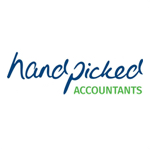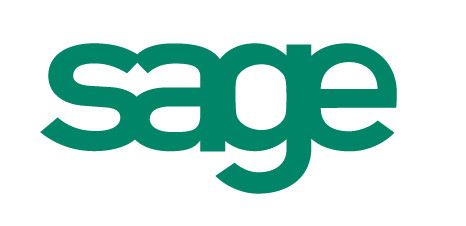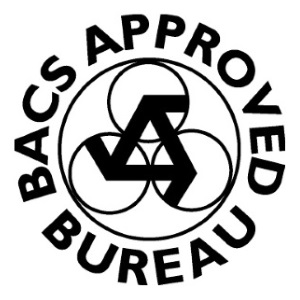Insolvency Solutions for Retail Businesses
The retail industry is one of the most dynamic sectors in the UK, but it also faces significant financial pressures. Rising operational costs, shifting consumer behaviours, and economic uncertainties can all contribute to financial distress. If your retail business is struggling with unmanageable debt, declining sales, or creditor pressure, it’s crucial to seek professional insolvency advice as soon as possible.
At BV Corporate Recovery & Insolvency Services Ltd, we provide tailored insolvency solutions to help retail businesses navigate financial difficulties. Whether you need to restructure your debts, close your business efficiently, or explore recovery options, we are here to support you.
Signs of Financial Distress in Retail
Retail businesses operate on tight margins, making them particularly vulnerable to financial difficulties. Some key warning signs that your business may be heading towards insolvency include:
- Cash Flow Problems – Struggling to pay suppliers, staff wages, or rent on time.
- Declining Sales – A persistent drop in revenue due to changing consumer habits or increased competition.
- Mounting Debt – Growing levels of unpaid invoices, loans, or HMRC arrears.
- Creditor Pressure – Receiving final demands, statutory demands, or threats of legal action.
- Overstocking or Understocking – Difficulty in managing inventory, leading to cash being tied up in unsold goods or shortages impacting sales.
- High Fixed Costs – Rent, business rates, and wages becoming unsustainable compared to revenue.
If you recognise these warning signs, seeking early advice from insolvency professionals can provide more options to rescue or restructure your business.
Insolvency Solutions for Retail Businesses
There are several insolvency and business recovery options available, depending on your business’s financial position and long-term viability.
1. Company Voluntary Arrangement (CVA)
A Company Voluntary Arrangement (CVA) allows a financially distressed retail business to continue trading while restructuring its debts. This legally binding agreement enables you to repay creditors over an agreed period, often with reduced payments.
Benefits of a CVA:
- Allows the business to continue operating under the control of existing directors, albeit trading is monitored by an insolvency practitioner.
- Stops legal action from creditors.
- Consolidates debts into manageable payments.
- Can improve cash flow and stabilise finances.
A CVA is an effective solution for retailers experiencing short-term financial difficulties but still have a viable business model.
2. Administration
If your retail business is facing serious financial pressure but has the potential to be rescued, Administration could be an option. This process provides temporary legal protection from creditors while an appointed Administrator assesses whether the business can be restructured, sold, or liquidated.
Key advantages of Administration:
- Provides a moratorium, halting creditor actions.
- Can facilitate a pre-pack administration sale to preserve jobs and assets.
- Allows time to explore rescue options without immediate pressure from creditors.
Administration can be a lifeline for larger retailers with significant brand value or multiple locations.
3. Creditors’ Voluntary Liquidation (CVL)
If your retail business is no longer viable and cannot pay its debts, a Creditors’ Voluntary Liquidation (CVL) may be the best course of action. This process allows the company to close in an orderly manner, with assets sold to repay creditors as much as possible.
Why choose a CVL?
- Prevents further creditor action and financial losses.
- Ensures a structured winding-up process.
- Allows directors to fulfil legal obligations and avoid wrongful trading.
A CVL is often the most appropriate option when a retail business cannot recover from financial distress.
4. Members’ Voluntary Liquidation (MVL)
If your retail business is solvent but you wish to close it down, a Members’ Voluntary Liquidation (MVL) allows you to do so tax-efficiently. This option is suitable for business owners who want to retire, move on to new ventures, or restructure their operations.
5. Refinancing and Business Turnaround
In some cases, refinancing or a business turnaround strategy can help retail businesses recover without entering formal insolvency. Options include:
- Business loans or asset-based finance to improve cash flow.
- Debt restructuring to negotiate better repayment terms with creditors.
- Operational changes to cut costs and improve efficiency.
Seeking professional advice early can increase the chances of a successful turnaround.
The Impact of Retail Insolvency on Directors
Retail business directors have a legal duty to act in the best interests of creditors when insolvency is imminent. Failing to do so can result in personal liability for company debts, director disqualification, or even legal action for wrongful trading.
To protect yourself and ensure compliance with insolvency laws, it is vital to seek expert guidance from insolvency professionals.
How BV Corporate Recovery & Insolvency Services Ltd can help
At BV Corporate Recovery & Insolvency Services Ltd, we specialise in helping retail businesses navigate financial distress. Our expert team provides:
- Free initial consultations to assess your business’s financial position.
- Tailored insolvency solutions based on your specific circumstances.
- Expert guidance on director responsibilities and legal obligations.
- A confidential and professional service to support you through the process.
If your retail business is struggling with financial difficulties, don’t wait until it’s too late. Contact BV Corporate Recovery & Insolvency Services Ltd today for expert insolvency advice and explore the best solutions for your business.












